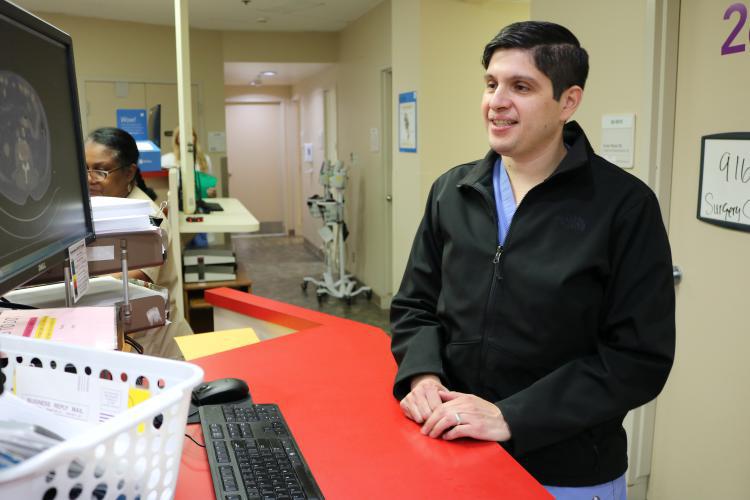
It’s still very important to be vigilant against COVID-19. But that’s no excuse to neglect other parts of your health and wellness.
People are skipping routine checkups and screenings, Dr. Victor Olivas, Surgery Program Director, said. The result: Things that might have been corrected are growing into much bigger problems.
“We’re seeing a lot of cases of cancer and heart issues where the disease is a lot more advanced than we’d like it to be before it’s detected,” Olivas said. “We have tumors that are bigger than we’d hope they’d be, sometimes 40 percent bigger. That’s making it tougher to handle them with surgery, and in some instances, localized cases have metastasized, moving to other organs.”
Olivas added that doctors are also seeing many more serious cardiac cases than we were a year ago.
“We might be seeing two bypass surgeries a day when before maybe we’d see two a week,” Olivas said. “Cases that might have been placing a stent or two have been allowed to go on untreated, so now they’re much more serious.”
"COVID is a beautiful excuse not to do the things you're supposed to do. But people are coming in with advanced cancers because of this."
What’s the reason for the neglect? Dr. Robert Stephenson, Vice President and Chief Quality Officer at JPS, said in most instances, people are afraid to be infected with COVID. So, they’ve decided they’re going to wait out the pandemic by putting off their normal screenings and doctor visits. They might have been able to do that for three or maybe even six months. But now that COVID has lingered on for a year, the collateral damage is starting to add up.
While protecting yourself from COVID is a priority, Stephenson said it shouldn’t be your only priority. Other health issues can be just as threatening, or sometimes more so.
Another problem, according to Stephenson, is the fact that COVID has monopolized resources. In some cases, clinics where patients get routine care were temporarily closed while doctors and nurses who staffed them were needed to care for infected patients in the main hospital. The clinics are now open. But the effect lingers as everyone tries to find a “new normal.”
While things like mammograms and colonoscopies were slowed because of staffing issues, Stephenson said JPS worked to quickly get those services back up and running after the first wave of COVID struck in the spring. It’s important, he said, that people take advantage of the availability of testing and keep on top of all aspects of their health.
Dr. Donald Lesslie, Surgical Oncologist said it seems like the virus has distorted people’s perception of self-care. Instead of taking a wide-angle view of their health, people have been focused on trying to avoid COVID.
“Your cancer doesn’t care about COVID,” Lesslie said. “I’d like to get that printed on a t-shirt. Fear, avoidance, and denial are all things that keep us from going to the doctor when we should. COVID is a beautiful excuse not to do the things you’re supposed to do. But people are coming in with advanced cancers because of this. The name of the game in oncology is finding the problem as soon as possible, then you have the best chance to do something about it.”
Stephenson said healthcare providers are being extra careful to protect patients – and themselves – from COVID. In many cases, routine healthcare visits can be conducted virtually.
“Patients shouldn’t be afraid to go to their doctor because of COVID,” Stephenson said. “We have been able to put measures in place to protect patients and ourselves so we can provide the comprehensive care they need to stay healthy.”
